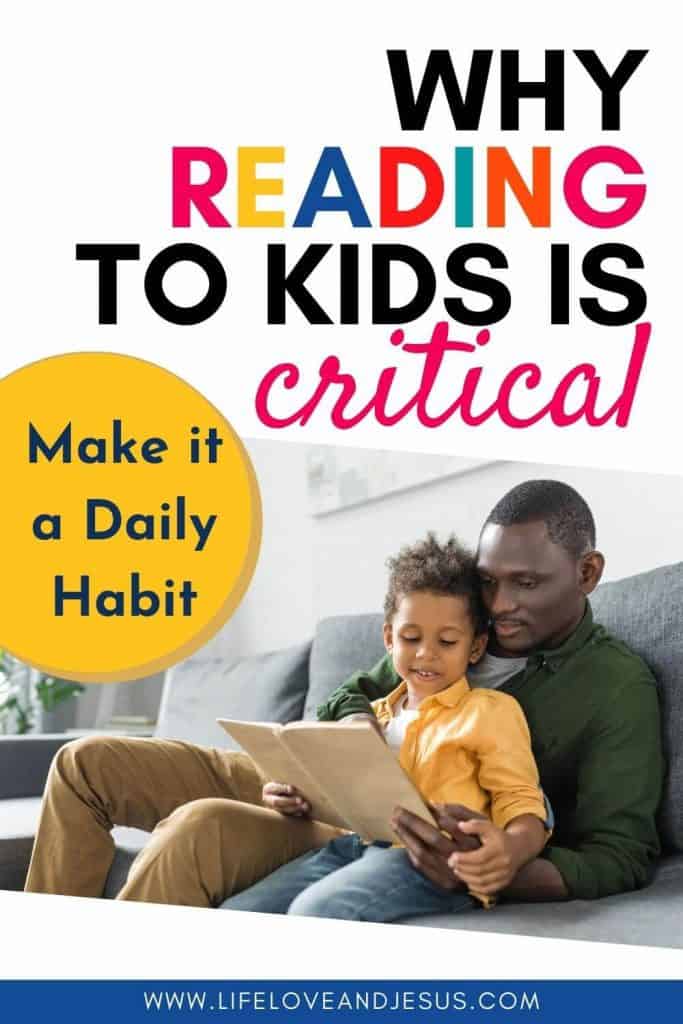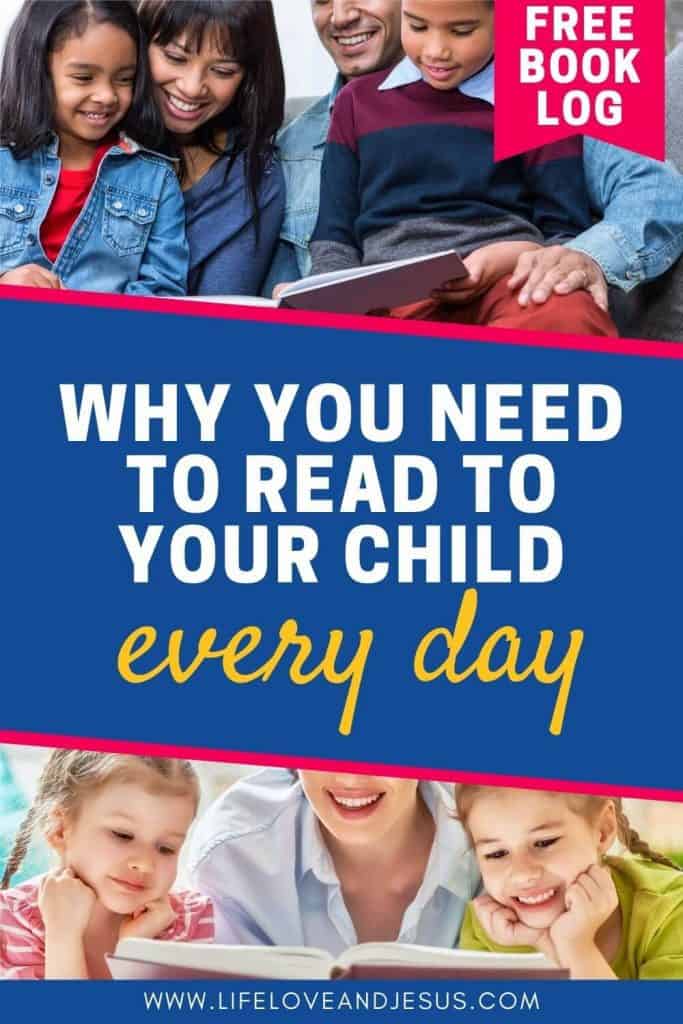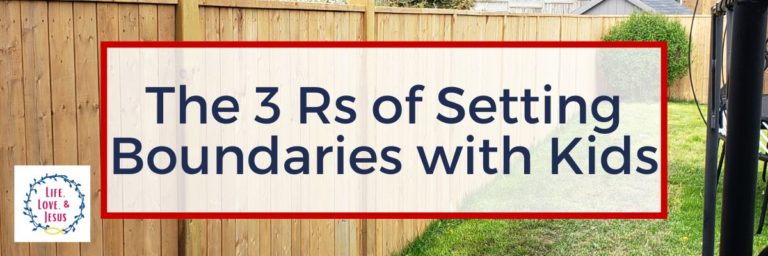Read Aloud Tips for Parents
This post contains affiliate links. If you click & make a purchase, I receive a commission! Thanks! Read my full disclosure policy. As an Amazon Associate, I earn from qualifying purchases.
Experts in reading tell anyone who listens that choosing to read aloud to young children – even newborns – is a critical component in helping them learn to read later in life. These read-aloud tips for parents will help you prepare your young children for success.
Many reading experts highly recommend that young children have a minimum of 1,000 books read to them before beginning kindergarten. Don’t let that number frighten you! There are 365 days in every year – so if you read aloud every night for just 3 years, you and your child will hit that mark. That gives you plenty of wiggle room for those days no reading gets done.

However, most children don’t want to stop at reading only one book. If you read three books a day you can almost effortlessly read up to 1,000 books in one year!
Why You Should Read Aloud to Young Children
But why? Why make the effort to read aloud to your child daily? Why do reading experts make such a big deal of this early reading habit?
Reading Aloud Wires the Brain
First, reading together wires the brain for learning to read later in life. An infant’s brain is only partially developed at birth, yet the connections that will support the child’s lifelong learning are mostly formed by age one. Yes, you read that correctly – age one!
To help those connections grow healthy and strong – and be prepared for the hard work of learning to read – babies need frequent exposure to thousands of words – words that are found in books, but not always in everyday conversation. For example, how often do you use the words horse, pig, or cow in conversation? But if you’re reading a book about farm animals, and re-reading it multiple times for the enjoyment of your child, how many times will they be exposed to those words?
Reading Aloud Builds a Strong Foundation for Thinking
A second reason for reading aloud is that this activity provides the perfect opportunity to have conversations with your child. Conversation is the foundation of thinking – so if you want your child to know how to think, then you must have many conversations together.

For example, when our children were in their tween and teen years, I used to often have them defend their requests for one privilege or another to me. They had to come up with good reasons for the privilege and be able to state their position clearly. The foundation for this thinking skill was laid in early conversations around books.
If you want your child to be able to think independently – and not automatically follow the crowd, then engaging in conversations early in life, and continuing throughout the growing-up years, is vitally important.
Reading Aloud Builds Listening and Learning Stamina
Reading aloud to children also helps them to develop the ability to concentrate on one task for an extended period of time. This habit of concentration is sorely lacking in children today. When I was teaching, I saw an ever-increasing number of students unable or unwilling to be still, concentrate on a single task, and focus on learning – in reading, math, or anything else. To prevent this from developing, read aloud daily to your child from birth.
One obvious reason for this inability to focus and concentrate is that children are being entertained by screens instead of books. For more about controlling screens, check out this article.
I taught elementary school for 15 years and in that time I saw a marked increase in ADHD diagnosis and medicated children. These children did not have the stamina they needed to learn, many of them did not possess the desire to learn, nor did they enjoy reading. On top of that, reading aloud in schools is sharply declining due to other pressures (a topic for another day).
Reading Aloud Builds Strong Emotional Bonds
A fourth reason for making a habit of reading aloud is that it nurtures the bond between parent and child. Interacting with each other while reading books and also having fun will create strong feelings of emotional closeness. Your child will know, deep inside, that she matters enough to you that you will give undivided attention to her. Children thirst for this knowledge in ways we can barely comprehend. Taking even fifteen minutes every day to read aloud together will cement her feelings that she is the most important part of your world.
Additionally, those strong positive emotions will be transferred to the idea and practice of reading. Because your child enjoys the closeness he has with you while reading, those positive feelings are automatically associated with reading. Those early positive experiences with books give him an advantage in learning to read and liking to read.
I agree with Mark Twain, who famously stated that “He who does not read has no advantage over the man who cannot read.” If your child learns early to associate reading with pleasant feelings, not only will learning to read be easier but wanting to read will be more natural.
Finally, “if every parent understood the huge educational benefits and intense happiness brought about by reading aloud to their children, and if every parent – and every adult caring for a child – read aloud a minimum of three stories a day to the children in their lives, we could probably wipe out illiteracy within one generation” (Mem Fox). Be the person who protects the children in your life from illiteracy by reading aloud to them.
Read Aloud Tips for Parents
I mentioned earlier that if you read three books a day to your child, you’d hit the 1,000-book goal within a year. Does it matter which three books you read? Yes and no. Before covering three key tips, remember that you can find plenty of book suggestions online. Check out these suggestions for wonderful books to read to your preschooler!
5 Tips for Choosing Books
The books read to your child matter because there are good books, bad books, excellent books, and really awful books. You want to find excellent and good books and try to avoid the bad and awful ones.
Good books to read will entertain and enthrall your child. You’ll usually find that the bad and awful books will be eliminated almost automatically because your child won’t ask for them over and over. Of course, that isn’t always the case, so sometimes you just have to decide which books are either not worth your time or are actually harmful and get rid of them.
Choose that are well written. For young children, books should contain rhythm and rhyme, strong vocabulary, beautiful illustrations or photographs, and interesting storylines. Whatever book you read should encourage your child to want “just one more.”
Choose books that support your family’s values. There are plenty of books that are extremely well written but promote antibiblical ideas. Many of these are obvious and easy to spot and avoid. Unfortunately,there are also plenty are books that are subtly subversive in promoting extreme individuality, discouraging strong family ties, downplaying the importance of fathers (or mothers), and sidelining faith. You have to learn discernment to detect and eliminate these stealth books.
Choose books that you enjoy. While your enjoyment shouldn’t be the only criterion – after all, how much can you love construction equipment? – your judgment has been formed over years of life and faith, so it shouldn’t be ignored. This quote from C.S. Lewis addresses that idea: “No book is really worth reading at the age of ten which is not equally – and often far more – worth reading at the age of fifty and beyond.”
Choose books that were your favorites growing up. There are two great reasons for returning to old family favorites. First, those books have already stood the test of time so you know they’re good. You enjoyed them as a child, so you can safely assume your child will enjoy them.
Second, older books are far less likely to be subtly subversive, as discussed above. You are far more likely to find positive, intact families as characters in older books. You are far more likely to find faith mentioned in older books. And you are far less likely to run across unbiblical ideas like having two moms or two dads is just as good as having a married and committed mom and dad.
Finally, choose books that will bring variety to your child’s mind. While there is no need to constantly be introducing new books – or else how will something become a favorite? – you will want to strive to have a wide variety of books that you read. This variety should cover every genre or type of book, including nonfiction, fairy tales, realistic fiction, fantasy, fables, legends, and mysteries.
Includes books from a variety of cultures as well. When your children are older, it’s fun to read different versions of common fairy tales, such as Cinderella, from different cultures and discuss the similarities and differences. This type of activity builds strong critical thinking skills and discernment.
4 Tips for Reading Books
Just as important as choosing good and excellent books to read, you also need to learn how to read books aloud. The truth is that reading books aloud will almost never be a straightforward, front-to-back, word-for-word process – especially with toddlers and preschoolers.

Teach your child how to hold and read a book. Simple things like how to turn one page at a time, how to hold a book, where the front of the book is, and which direction the print goes seem obvious to you. They aren’t obvious to young children.
Teach him that those black squiggly things on each page are letters that make the words you read. You teach this most naturally by simply following the print with your finger as you read. This is all automatic for you – but your child needs to be taught what letters and words are.
Spend time on every page pointing out the illustrations or photos and commenting on their beauty. Name objects, animals, and people, especially when those items are not ones your child knows intimately. Discuss what some of those items do.
For example, if your child only sees tractors in books, talking about what tractors can do is important. Part of that is likely covered in the book with tractor pictures. But you should always try to add more information whenever possible. These habits help build your child’s vocabulary and background knowledge.
Take the time to ask questions about the story – even if you answer them yourself at first. Asking and answering questions before your child can talk models this critical skill. However, once he learns to talk, allow your child to answer your questions. Remember, part of the magic of reading aloud is the power of conversation.
Also, remember to ask more than just ‘what happened’ types of questions. These questions, such as “What did the dog do?” are easy and a great place to start building this habit into your reading time.
As your child grows and learns to think, add in more questions that require thinking and imagining. Try questions such as these:
- How does this picture make you feel?
- What do you think will happen?
- Who do you like most in this story? Why?
- Who do you like least? Why?
- What was your favorite part?
- What part of the story does this picture show?
- Do you think you would enjoy meeting [a character from the book]? Why or why not?
- Do you think you’d like to live [in a place from the book]? Why or why not?
Resources for Finding Good Books to Read Aloud
Do yourself a favor and get a book of suggested books to read to children. I highly recommend Honey for a Child’s Heart, by Gladys Hunt (4th edition). Gladys Hunt writes from a Christian worldview, so you know your suggestions are trustworthy. Even though the most recent update was in 2002, her recommendations are well worth reading!
Other online resources include family-oriented ministries and homeschool bloggers. Focus on the Family has some great recommendations. Almost any homeschooling blogger will have lots of great recommendations! Check out Intentional Homeschooling and Not Consumed – search for books and you’ll get lots of results. Finally, you can check out my list of 20 favorites for preschoolers, and find more recommendations on my children’s books Pinterest board.







One Comment
Comments are closed.